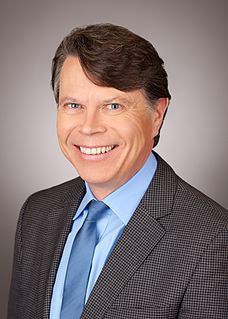A Quote by James F. Cooper
The very existence of government at all, infers inequality. The citizen who is preferred to office becomes the superior of those who are not, so long he is the repository of power.
Quote Topics
Related Quotes
Government force is derived from the sum of the physical force each citizen could exert which by one citizen himself would be ineffective, but when summed from the force of all the area's citizens indeed composes a power no citizen or group can withstand. That force is then rightly but justly to be used against those who violate the foundation pillars of freedom.
Although I held public office for a total of sixteen years, I also thought of myself as a citizen-politician, not a career one. Every now and then when I was in government, I would remind my associates that "When we start thinking of government as 'us' instead of 'them,' we've been here too long." By that I mean that elected officeholders need to retain a certain skepticism about the perfectibility of government.
For those who fancy that government's projects are uniquely important, or for those who imagine that holding government office makes someone unusually saintly or trustworthy, entrusting government with power that we would never entrust to our neighbors or other private citizens might seem sensible. To me, it's dangerous, unjustified, and unjustifiable.
So we must lay it down that the association which is a state exists not for the purpose of living together but for the sake of noble actions. Those who contribute most to this kind of association are for that very reason entitled to a larger share in the state than those who, though they may be equal or even superior in free birth and in family, are inferior in the virtue that belongs to a citizen. Similarly they are entitled to a larger share than those who are superior in riches but inferior in virtue.
Our worst instincts as human beings have to do with our carelessness with natural resources, and when the body itself becomes just one more of those resources, how will we treat it? Will we treat it with such indifference and with such depersonalization that it becomes more like a very fancy car than a repository of the self?
If the benevolent ruler stays in power long enough, he eventually concludes that power and wisdom are the same thing. And as he possesses power, he must possess wisdom. He becomes converted to the seductive thesis that election to public office endows the official with both power and wisdom. At this point, he begins to lose his ability to distinguish between what is morally right and what is politically expedient.
The kinds of people we need in government are precisely the kinds of people who are most reluctant to go into government -- people who understand the inherent dangers of power and feel a distaste for using it, but who may do so for a few years as a civic duty. The worst kind of people to have in government are those who see it as a golden opportunity to impose their own superior wisdom and virtue on others.
Unlike liberalism, with its fundamental belief in the long-range power of ideas, conservatism is bound by the stock of ideas inherited at a given time. And since it does not really believe in the power of argument, its last resort is generally a claim to superior wisdom, based on some self-arrogated superior quality.






































